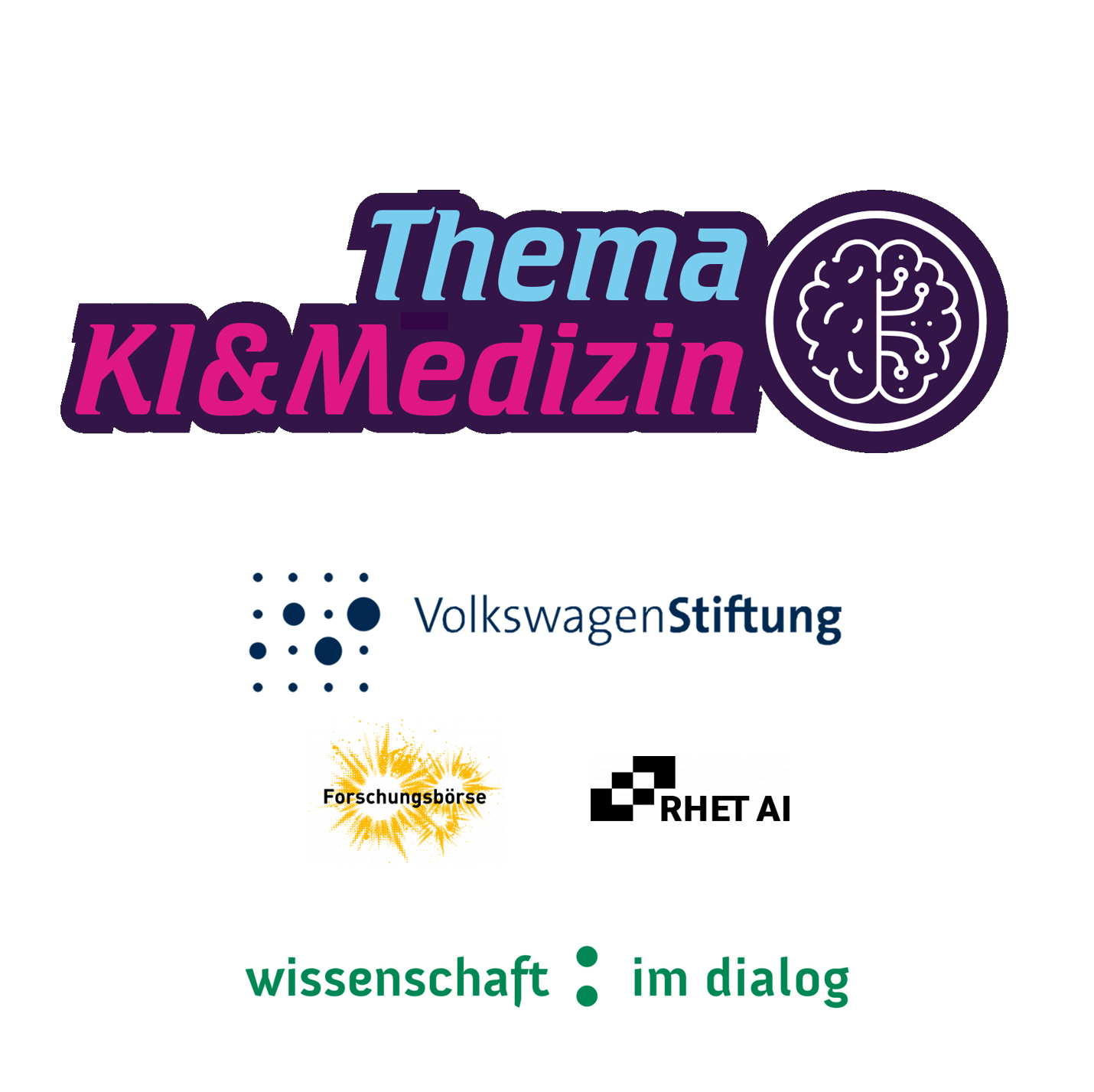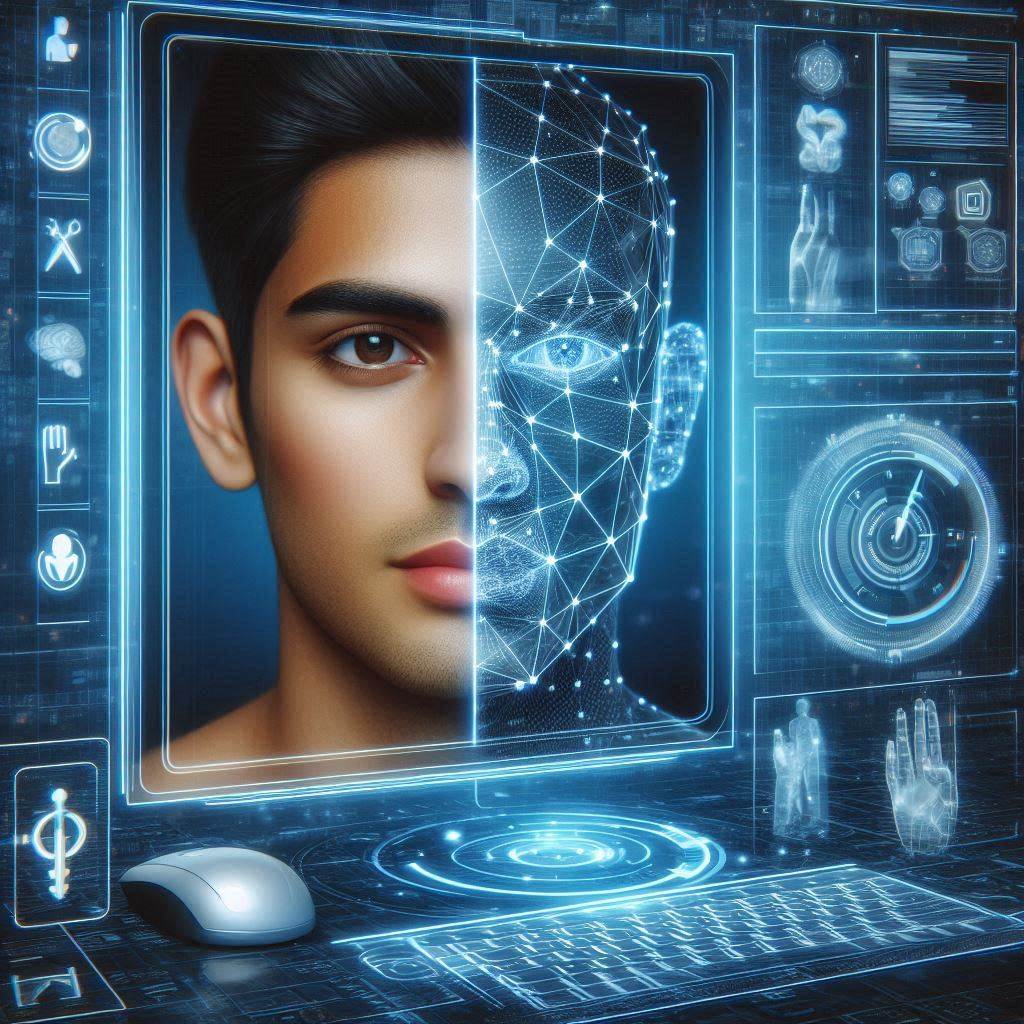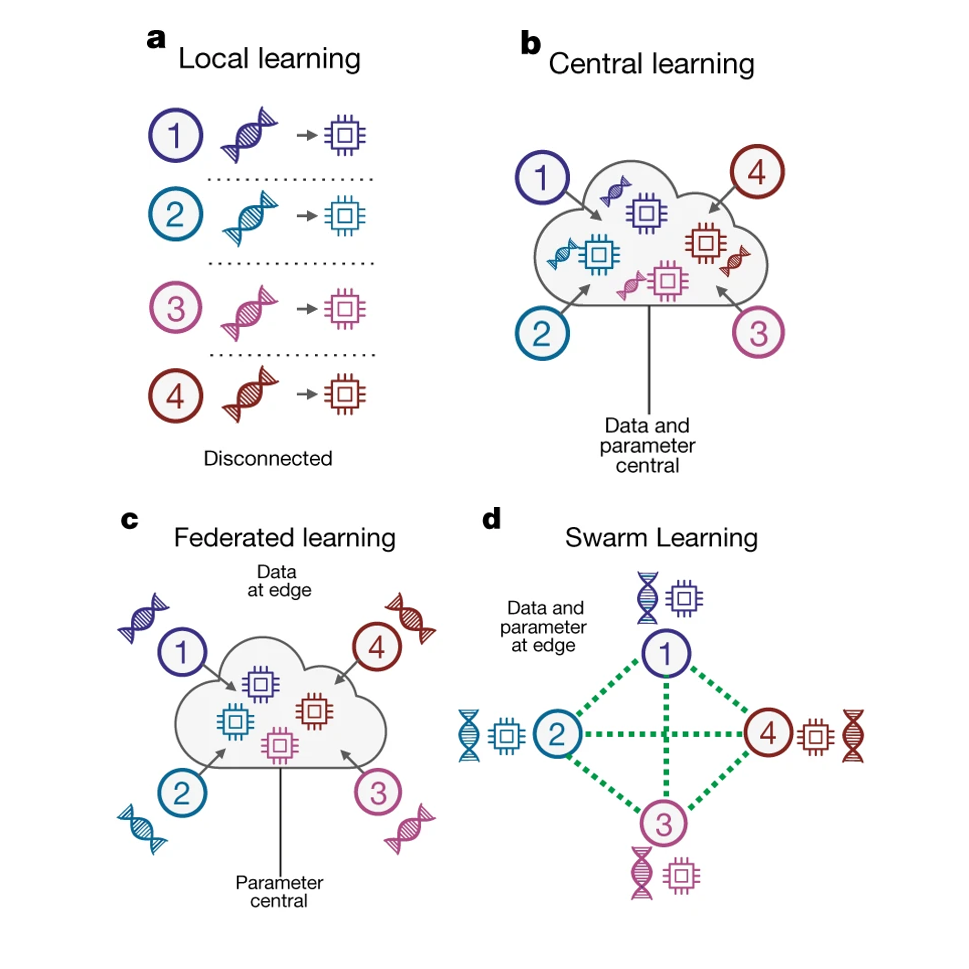
Public Outreach: communicating Swarm Learning to school pupils
Our team engaged in the science communication project on artificial intelligence "I'm a Scientist" by Wissenschaft im Dialog, funded by the Volkswagen Foundation, in cooperation with RHET AI and Forschungsbörse. Through gathered questions on the communication platform on the website and written live chats, pupils enter into a dialogue with scientists, learn about their everyday work and which topics they are currently conducting research on. The project takes place several times a year, focusing on different themes in each round and at the end of each round, the pupils vote on their favourite scientists. In 2024, the topic was "Artificial Intelligence and Medicine" and the winner for the Winter round is our team member, Dr. Jonas Schulte-Schrepping. Congrats, Jonas!
Click on the link below to read the questions and know more about the project!
Further reading:

Swarm Learning: Revolutionizing Medicine with Smarter, Safer AI Collaboration
In this perspective, Prof. Dr. Joachim Schultze discusses Swarm Learning as a new AI approach that allows medical institutions to collaboratively train models without sharing sensitive patient data. By keeping data local and using blockchain technology to track transactions between network partners, this approach respects privacy laws while fostering the application of AI to larger, more diverse datasets thereby developing better AI-driven diagnostics. Swarm Learning is highly adaptable, showing potential in disease detection and biomarker discovery, especially in complex fields like neurodegeneration or infectious diseases.
Further reading:
Schultze, J. L. Building Trust in Medical Use of Artificial Intelligence – The Swarm Learning Principle. Journal of CME (2023), 12(1). DOI: 10.1080/28338073.2022.2162202

Uniting Data for Health: How Swarm Learning is Revolutionizing Immunology
Immunophenotyping is one of the major approaches in immunology and could contribute significantly to precision medicine. New techniques like single-cell genomics and artificial intelligence (AI) are currently opening new avenues in immunophenotyping, though working with data from many patients across different organizations is complex. To address data-sharing restrictions, our team is applying Swarm Learning to immunophenotyping data in different clinical settings. This approach promises to advance immune-related disease understanding and improve diagnostics, paving the way for breakthroughs in precision medicine.
Further reading:
Schultze, J.L., Büttner, M. & Becker, M. Swarm immunology: harnessing blockchain technology and artificial intelligence in human immunology. Nat Rev Immunol 22, 401–403 (2022). DOI: 10.1038/s41577-022-00740-1

Hirn & Heinrich: Podcast episode on Big Data and Swarm Intelligence
In a conversation with Sabine Heinrich, Prof. Dr. Joachim Schultze explains why linking and interacting with other researchers is so important and what role "big data" and machine learning play in this context. Swarm Learning allows analyzing and evaluating large amounts of medical data using artificial intelligence. The aim is to recognize patterns and use them to develop the appropriate diagnostics and therapy. In the podcast, he explains why there is no need to be afraid of artificial intelligence or big data and why doctors will never become dispensable.
Check the episode:
Hirn & Heinrich: Demenzforschung mit Big Data und Schwarm-Intelligenz

How Machine Learning is Changing Medicine, One Dataset at a Time
In this review article, Dr. Matthias Becker describes Swarm Learning as an innovative approach that allows hospitals and research centers to collaborate on AI models without sharing patient data, making it highly privacy-friendly. Unlike traditional methods that rely on central data hubs, Swarm Learning allows each site to train models locally and then only share the learned model parameters, that are combined across all sites. By tapping into distributed data sources, Swarm Learning enables the development of more robust and unbiased models that could help detect rare diseases and even track global health trends, like pandemics, in real time.
Further reading:
Becker, M. Swarm learning for decentralized healthcare. Hautarzt 73, 323–325 (2022). DOI: 10.1007/s00105-021-04940-z

A novel technology for cooperative analysis of big data
Fast and reliable detection of patients with severe and heterogeneous illnesses is a major goal of precision medicine. However, there is an increasing divide between what is technically possible and what is allowed, because of privacy legislation. To facilitate the integration of any medical data from any data owner worldwide without violating privacy laws, together with Hewlett Packard Enterprise, we introduced Swarm Learning—a decentralized machine-learning approach that unites edge computing, blockchain-based peer-to-peer networking and coordination, thereby going beyond federated learning.
To illustrate the feasibility of using Swarm Learning to develop disease classifiers using distributed data, we used data from COVID-19, tuberculosis, leukemia and lung pathologies. With more than 16,400 blood transcriptomes derived from 127 clinical studies as well as more than 95,000 chest X-ray images, we showed that Swarm Learning classifiers outperform those developed at individual sites.
Further reading:
Warnat-Herresthal, S., Schultze, H., Shastry, K.L. et al. Swarm Learning for decentralized and confidential clinical machine learning. Nature 594, 265–270 (2021). DOI: 10.1038/s41586-021-03583-3

